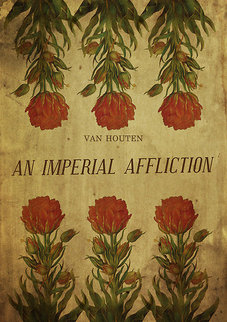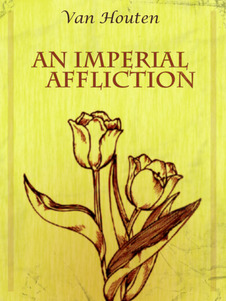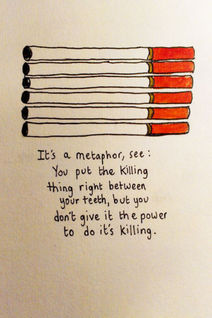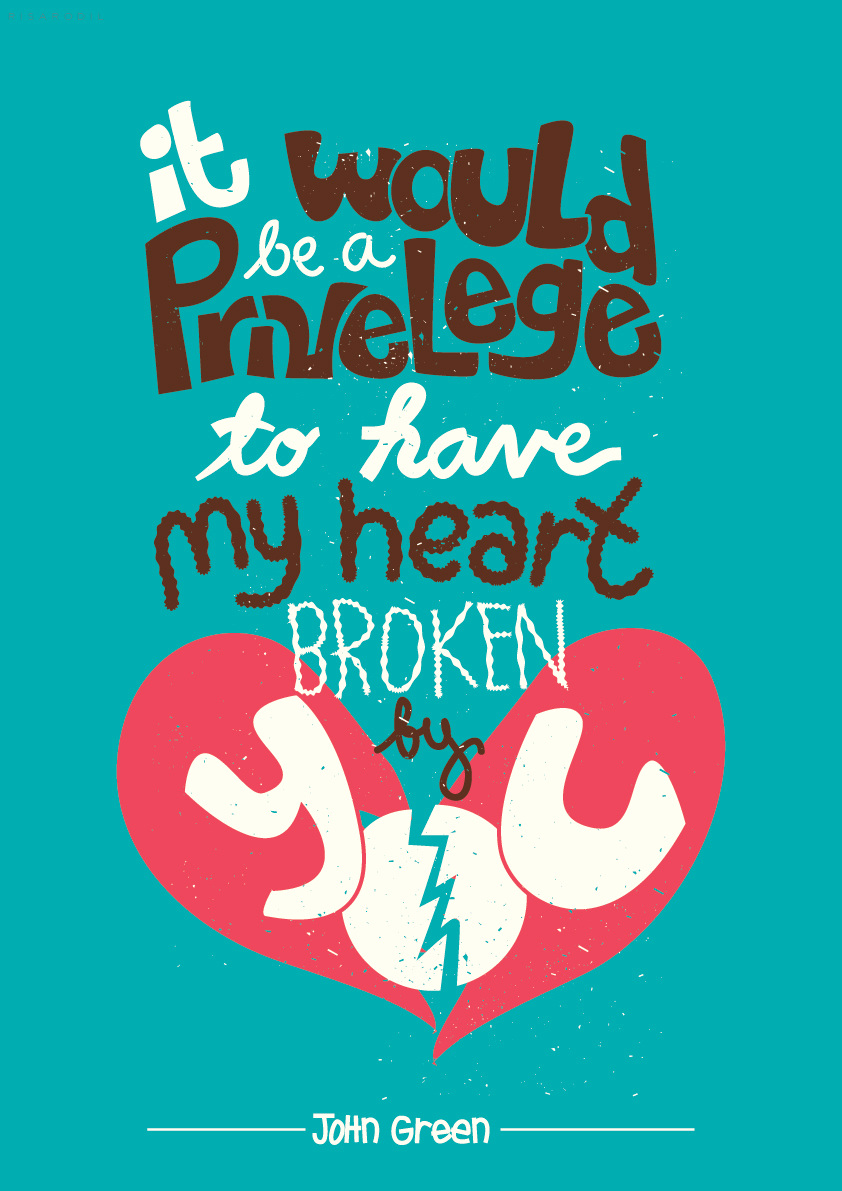As the tide washed in, the Dutch Tulip Man faced the ocean:
"Conjoiner rejoinder poisoner concealer revelator. Look at it,
rising up and rising down, taking everything with it."
"What's that?" I asked.
"Water," the Dutchman said, "Well, and time."
-- Peter Van Houten, An Imperial Affliction
affliction - [noun] a state of pain, distress, or grief; misery; a cause of mental or bodily pain, as sickness, loss, calamity, or persecution.

An Imperial Affliction, an imaginary book by the made-up Peter Van Houten, is Hazel, and later, Augustus's, favorite novel and plays a key role in The Fault in Our Stars. The above quote from the book was placed at the very beginning of John Green's novel as the epigraph. The purpose of an epigraph is set the general tone of the novel, and this particular epigraph fulfills its purpose.
Hazel's lungs "suck at being lungs." They are filled with water, and thus, she has to carry around an oxygen tank to allow her to breathe. The Dutchman describes water as being a "conjoiner, rejoinder, poisoner, concealer, revelator". The liquid in Hazel's lungs are all of these things: a conjoiner, because due to the fact that she has to attend the support group as a result of having the liquid in her lungs, she and Augustus meet and develop a relationship. It is a rejoinder because many people ask why she must carry her oxygen tank, and it is a poisoner because without the oxygen tank, it will kill her. The water in her lungs is also a concealer because since Hazel is incapable to doing many social activities that others are able to perform, so it, in a way, conceals who Hazel really is from people who do not know her. Lastly, it is also a revelator, because those who do look beyond her disabilities and truly get to know her discover that she is a strong person who can overcome the sadness the sickness brings. She finds that out for herself at the end of The Fault in Our Stars.
Time is also very important in the novel. Both Hazel and Augustus know that their time is running out, so they decide to make the most of what they have left. Both discuss time frequently in the novel, specifically infinities and how some people's infinities are longer than others. In the beginning of the novel, Augustus admits that he is afraid of oblivion, but Hazel responds with, "There will come a time...when all of us are dead. All of us. There will come a time where there are no human beings remaining to remember that anyone ever existed or that our species did anything. There will be no one left to remember Aristotle or Cleopatra, let alone you. Everything that we did and built and wrote and thought and discovered will be forgotten and all of this... will have been for naught. Maybe that time is coming soon and maybe it is millions of years away, but even if we survive the collapse of our sun, we will not survive forever. There is time before organisms experienced consciousness, and there will be a time after. And if the inevitability of human oblivion worries you, I encourage you to ignore it. God knows that's what everyone else does" (13).
Hazel's lungs "suck at being lungs." They are filled with water, and thus, she has to carry around an oxygen tank to allow her to breathe. The Dutchman describes water as being a "conjoiner, rejoinder, poisoner, concealer, revelator". The liquid in Hazel's lungs are all of these things: a conjoiner, because due to the fact that she has to attend the support group as a result of having the liquid in her lungs, she and Augustus meet and develop a relationship. It is a rejoinder because many people ask why she must carry her oxygen tank, and it is a poisoner because without the oxygen tank, it will kill her. The water in her lungs is also a concealer because since Hazel is incapable to doing many social activities that others are able to perform, so it, in a way, conceals who Hazel really is from people who do not know her. Lastly, it is also a revelator, because those who do look beyond her disabilities and truly get to know her discover that she is a strong person who can overcome the sadness the sickness brings. She finds that out for herself at the end of The Fault in Our Stars.
Time is also very important in the novel. Both Hazel and Augustus know that their time is running out, so they decide to make the most of what they have left. Both discuss time frequently in the novel, specifically infinities and how some people's infinities are longer than others. In the beginning of the novel, Augustus admits that he is afraid of oblivion, but Hazel responds with, "There will come a time...when all of us are dead. All of us. There will come a time where there are no human beings remaining to remember that anyone ever existed or that our species did anything. There will be no one left to remember Aristotle or Cleopatra, let alone you. Everything that we did and built and wrote and thought and discovered will be forgotten and all of this... will have been for naught. Maybe that time is coming soon and maybe it is millions of years away, but even if we survive the collapse of our sun, we will not survive forever. There is time before organisms experienced consciousness, and there will be a time after. And if the inevitability of human oblivion worries you, I encourage you to ignore it. God knows that's what everyone else does" (13).
Symbolism

There were many aspects of An Imperial Affliction that were symbolic.
THE DUTCH TULIP MAN: John Green intended for the character of the Dutch Tulip Man to be a symbol for God. Augustus and Hazel often discussed the Dutch Tulip Man as if they were discussing God. For example, Augustus says, "Not a con man, but not as rich as he was letting on" (235). This could be interpreted instead of the Dutch Tulip Man and his money, but God and His power. There is not much said about the Dutch Tulip Man either, and there is much mystery with him. The same is also with God. Peter Van Houten also claims that the Dutch Tulip Man is a metaphor for God.
PETER VAN HOUTEN: The author of An Imperial Affliction is also a symbol for God, because Hazel claims, "the book that was as close a thing as I had to a Bible" (13). However, if the Dutch Tulip Man was the real symbol for God, then Van Houten could possibly be a symbol for a prophet.
THE ACTUAL BOOK: The actual book is a symbol for the Bible, see above.
THE ENDING: The end of An Imperial Affliction actually ends mid-sentence because the narrator, Ana, dies from cancer. This is symbolic for Hazel's own story. She is worried as to what happens to her parents after she dies just like the reader is left wondering what happens to the other characters of the novel after Ana dies. After meeting Van Houten, whose own daughter had died from cancer, she doesn't want her parents to end up like him. This is why Hazel was so incredibly happy to find out at the end of the novel that her mother was learning to become a Support Group leader.
THE DUTCH TULIP MAN: John Green intended for the character of the Dutch Tulip Man to be a symbol for God. Augustus and Hazel often discussed the Dutch Tulip Man as if they were discussing God. For example, Augustus says, "Not a con man, but not as rich as he was letting on" (235). This could be interpreted instead of the Dutch Tulip Man and his money, but God and His power. There is not much said about the Dutch Tulip Man either, and there is much mystery with him. The same is also with God. Peter Van Houten also claims that the Dutch Tulip Man is a metaphor for God.
PETER VAN HOUTEN: The author of An Imperial Affliction is also a symbol for God, because Hazel claims, "the book that was as close a thing as I had to a Bible" (13). However, if the Dutch Tulip Man was the real symbol for God, then Van Houten could possibly be a symbol for a prophet.
THE ACTUAL BOOK: The actual book is a symbol for the Bible, see above.
THE ENDING: The end of An Imperial Affliction actually ends mid-sentence because the narrator, Ana, dies from cancer. This is symbolic for Hazel's own story. She is worried as to what happens to her parents after she dies just like the reader is left wondering what happens to the other characters of the novel after Ana dies. After meeting Van Houten, whose own daughter had died from cancer, she doesn't want her parents to end up like him. This is why Hazel was so incredibly happy to find out at the end of the novel that her mother was learning to become a Support Group leader.






 RSS Feed
RSS Feed